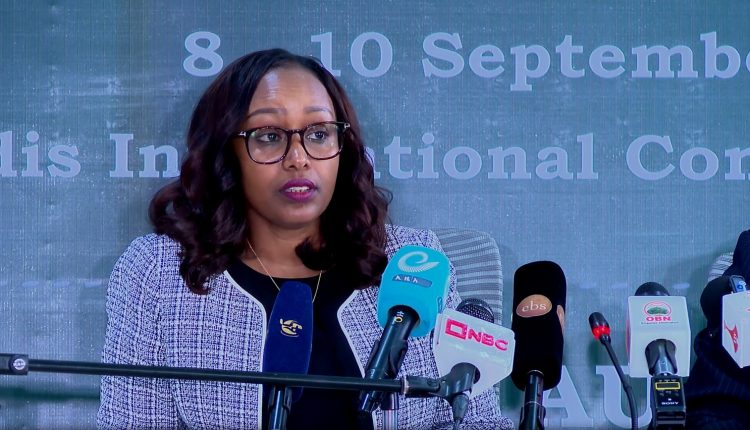Second Africa Climate Summit to galvanize concrete climate action and financing for Africa
Addis Ababa, June 17, 2025 (FMC) — Ethiopia’s Minister of Planning and Development, Fitsum Assefa, has emphasized that the upcoming Second Africa Climate Summit (ACS2) will be a pivotal moment for mobilizing tangible solutions and unlocking financing to build a climate-resilient future for the continent.
The summit, scheduled to take place in Addis Ababa from September 8 to 10, 2025, follows a decision made at the recent African Union Summit and is being organized in collaboration with the African Union Commission. It aims to accelerate global climate solutions and improve access to climate financing aligned with Africa’s sustainable development agenda.
In a media briefing today, Minister Fitsum highlighted that Ethiopia’s selection as host underscores the country’s long-standing commitment to climate action and sustainable growth.
“The Government of Ethiopia has consistently demonstrated its dedication to climate resilience, most notably through its Climate-Resilient Green Economy (CRGE) Strategy, launched in 2011, which remains a cornerstone of our 10-Year Development Plan,” she noted.
She pointed out that Ethiopia is translating its climate commitments into measurable outcomes through flagship initiatives, including the Green Legacy Initiative, which has seen over 40 billion tree seedlings planted between 2019 and 2023. Additional programs in renewable energy, e-mobility, climate-smart urban development, sustainable land use, and watershed restoration further reinforce the country’s leadership.
The summit is expected to convene around 25,000 participants, including heads of state, international climate leaders, civil society representatives, academics, and private sector stakeholders. Themed “Green Talks and Green Actions,” the event will spotlight scalable, nature-based solutions, promote climate finance, and foster investment in green development.
African Union Commissioner for Agriculture, Rural Development, Blue Economy, and Sustainable Environment, Moses Vilakati, underlined the urgency of the summit in light of Africa’s acute vulnerability to climate shocks.
“Although Africa contributes only 4 percent of global greenhouse gas emissions, the continent suffers disproportionately from climate change’s impacts—threatening food and water security, public health, and infrastructure,” he stated.
Vilakati revealed that Africa needs an estimated 250 billion USD annually to fund climate adaptation and mitigation efforts, yet it currently receives only 30 billion USD. He called for innovative financing solutions and stronger global cooperation to bridge this critical funding gap.
“This summit will provide a platform for high-level dialogue and concrete action to advance Africa’s transition toward a green and climate-resilient future,” he concluded.

